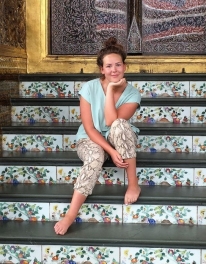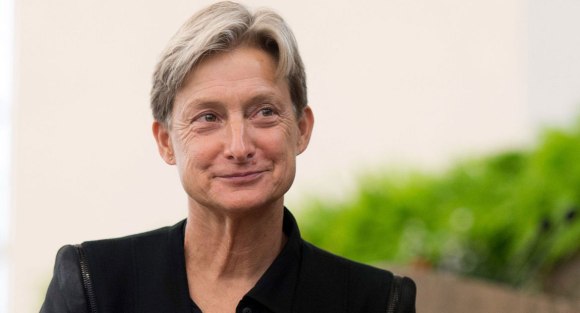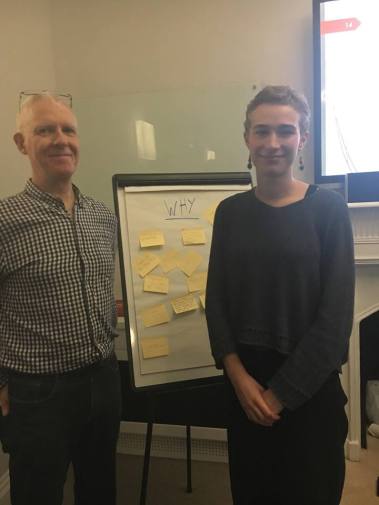Hello! We are Nina and Ed and we are the current editors of the Landscape Surgery blog. We are both first year PhD students and members of the Social, Cultural and Historical Geography Research Group at Royal Holloway University of London. We are both extremely excited to take over this role from Huw and Katy and to continue to dissect the exciting dialogue generated by this research group at our bi-weekly ‘Landscape Surgery’ meetings. We are also looking forward to operating an informative blog which highlights the research groups contributions in publications, through public events and academic conferences, interdisciplinary workshops and dialogue with other institutions. We welcome submissions from all ‘surgeons’ relating to their topical research interests, upcoming events, general PhD life, post-doc and career advice; and generally, all things Geography (and beyond!). We also welcome any guest posts and/or advice and ideas to improve the blog! If you would like to submit a blog post or have any comments or queries, we would love to hear from you! Please get in touch with us at Nina.Willment.2013@live.rhul.ac.uk or Edward.Brookes.2015@live.rhul.ac.uk
So here is five quick fire questions to get to know us a little bit better..
Ed Brookes

- Current Research Interests:
My current research foci centres around urban geography, with particular interests in social housing, architecture and home. My PhD combines these foci as it looks to explore the social history of the Robin Hood Gardens council estate in East London during its demolition. As part of that I’m also heavily looking into contemporary archaeology and how it can be used by cultural geography as a toolkit for exploring urban spaces.
- What was your MA dissertation about?
In short it was about corridors. I wanted to examine some of the spaces that we overlook in our everyday lives, the corridor being a place many of us frequently walk through but spend little time thinking about. Using this as my framework, I explored the corridor artwork of two artists; Bruce Nauman and a Danish architectural duo called ‘AVPD’. Using their work, I attempted to highlight how the corridor can provide a means to engage with the often-overlooked aspects of lived architectural space.
- What do you do outside academia?
Outside of academia I read a lot of science fiction and fantasy… probably an unhealthy amount. Films and board games also take up a good chunk of my spare time. I also love to cook, so am frequently found trying out new recipes for cakes and other unhealthy baked goods.
- What is your favourite song to work too?
Well I can’t work to anything with lyrics otherwise I get distracted. But anything by Thomas Newman is good. If I had to pick one of his pieces it would be ‘Any Other Name’, which was used in the film American Beauty (A good watch if anyone hasn’t seen it).
- What is your favourite book
Probably a cliché but it’s got to be ‘1984’ by George Orwell. Dystopian fiction at its best. Also, its got some solid corridor imagery.
Nina Willment

- Current Research Interests:
My current research interests are around the intersection of economic and cultural geography, especially in relation to creative work. In particular, I am interested in the politics of creative labour and forms of aesthetic, affective and curatorial labour. I’m also interested in digital and visual methodologies and how these can be used to understand the changing form of the workspace. I’m currently trying to figure out a new empirical foci through which I can develop these themes.
- What was your MA dissertation about?
Within my MA dissertation, I wanted to examine the forms of aesthetic labour undertaken by DJs involved in London’s grime music scene. I developed three areas of focus to investigate the concept of aesthetic labour relating to the physical, performing and digital body of the grime DJ. Through these three foci, I aimed to expand the currently limited conceptions of aesthetic labour to include ideas of digital aesthetic labour and ideas of aesthetic labour as the propagation of affective atmospheres.
- What do you do outside academia?
Outside of academia, I absolutely love travelling! I try to go away as much as I can (probably why I have no money) Apart from that, I love walking my miniature dachshund (probably why I own waaay too much sausage dog stationary) and upcycling furniture (probably why procrastination always ends in the need to rearrange my room).
- What is your favourite song to work too?
Ahh I’m one of those people that have to be in absolute silence to get anything done but if I’m ever having writers block or feel a bit down, I always whack on Clean Bandit’s New Eyes album and instantly feel a bit better!
- What is your favourite book?
I’ve absolutely adored the Harry Potter books since I was a kid but more recently I’ve fallen in love with Brandon Stanton’s ‘Humans of New York’ book series, which has been adapted from his Humans of New York blog. I’m also a fan of Khaled Hosseini’s and love his ‘A Thousand Splendid Suns’ novel.
Nina Willment
 Judith Butler – Courtesy of Google Images
Judith Butler – Courtesy of Google Images


 Image of Huw and Joy. Photography by Nina Willment
Image of Huw and Joy. Photography by Nina Willment Image Courtesy of Emily Hopkins
Image Courtesy of Emily Hopkins